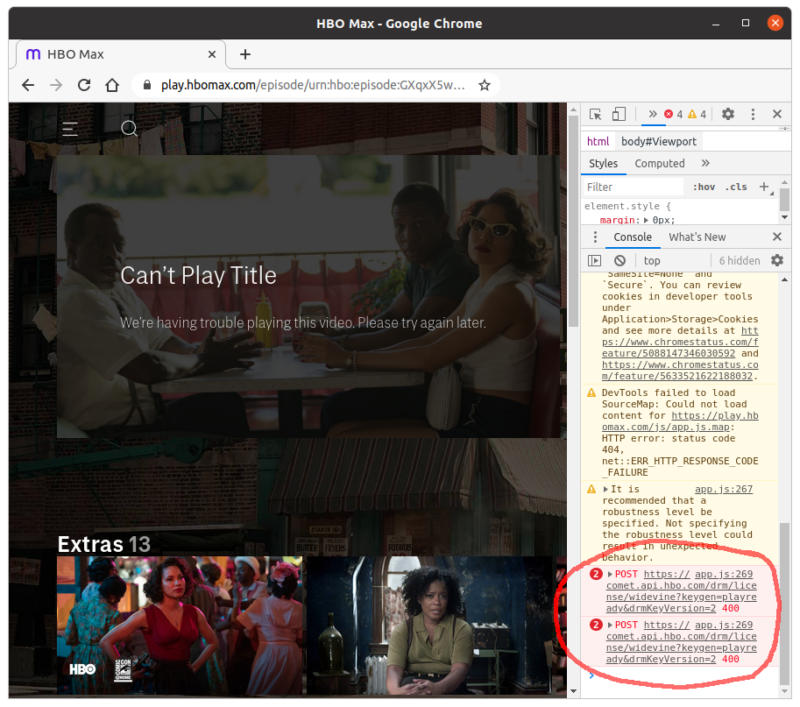
Enlarge / Sometimes it seems like Widevine is the DNS of Digital Rights Management. "It can't be Widevine!" It was Widevine. It's always Widevine... (credit: Jim Salter)
A reader tipped us off today that HBO Max stopped working a couple of weeks ago for Linux users, under any Web browser. Any attempt to play back a video on the streaming service on a Linux system—regardless of distribution or browser—returns an error saying, "We're having trouble playing this video. Please try again later." (To be clear, this is a problem for generic Linux PCs, not dedicated Linux-based streaming hardware—the HBO app still works just fine on a Roku we also tested today.)
Unfortunately, trying again later won't help—the root cause of the problem is that the Widevine DRM attempting to protect HBO Max's content from pirates is refusing to recognize any Linux system as a known platform. We saw the same thing happen in January, when CBS All Access suddenly stopped working on Linux in the same way. When we asked CBS executives if they had enabled the Verified Media Path (VMP) requirement on their Widevine server, they suddenly clammed up—but later that day, the service miraculously worked for Linux users again.
We did verify that HBO Max will not work on Linux browsers and that the problem is—once again—Widevine DRM refusing to issue a license. Although HBO Max has not returned requests for comment at press time, it seems very likely that the cause here is the same as it was for CBS All Access back in January. It seems like somebody enabled Verified Media Path on the Widevine server, and since the Linux kernel is not a verified media path, Linux users can't get a license and can't watch the content.
No comments:
Post a Comment